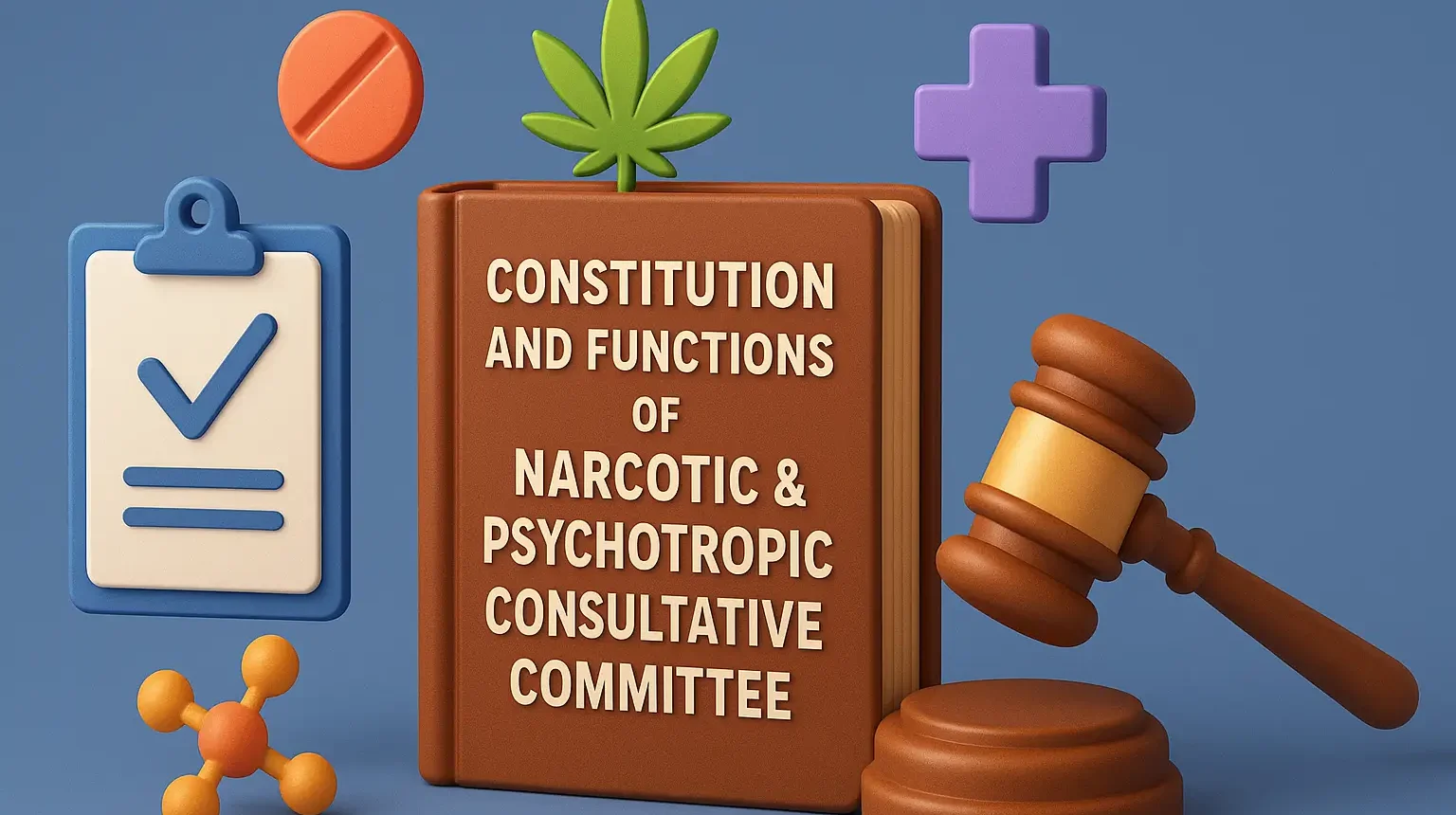This article explains about the constitution and functions of the Narcotic and Psychotropic Consultative Committee and its role in national drug policy.
Narcotic & Psychotropic Consultative Committee
- The Narcotic & Psychotropic Consultative Committee (NPCC) plays a pivotal role in the comprehensive enforcement and strategic planning against drug abuse and trafficking.
- Below is a detailed look at its constitution and functions.
Constitution
-
Formation:
- Established under the NDPS Act as a consultative body to coordinate and oversee drug control measures.
-
Composition:
- Chairperson: Senior government official (e.g., Secretary of the Ministry of Home Affairs or Health).
- Members:
- Representatives from the Ministry of Health and Family Welfare.
- Central Bureau of Narcotics officials.
- State Drug Control Bureau officials.
- Medical and psychiatric professionals.
- Representatives from rehabilitation centers and NGOs.
- Legal experts and policymakers.
- Academic experts in pharmacology, addiction studies, and public health.
-
Term:
- Members typically serve for 3 to 5 years, with possible extensions based on performance and need.
Functions:
- Strategic Planning: Develop strategies to combat drug abuse and trafficking.
- Policy Development: Recommend and amend policies for effective drug control.
- Coordination: Ensure collaboration between government agencies and NGOs.
- Monitoring & Evaluation: Assess implementation and suggest improvements.
- Awareness Campaigns: Educate the public on drug abuse prevention.
- Rehabilitation: Support recovery and reintegration programs.
- Research & Analysis: Study drug abuse trends and inform decisions.
- International Collaboration: Align efforts with global standards and share practices.
- Resource Mobilization: Secure funding and partnerships for drug control.
- Legislative Advocacy: Propose reforms to strengthen drug laws.
Advertisements

